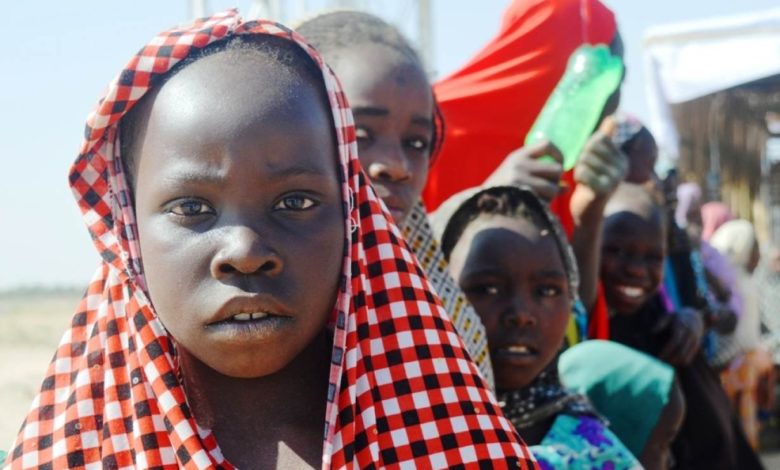#InternationalDayOfTheGirlChild: The Present Day Reality

Girls and women represent half of the world’s population and half of its potential. This is why the #InternationalDayoftheGirlChild, commemorated yearly on October 11, focuses on a renewed hope for the female gender and inspires equal opportunities, importance and recognises the potential young girls hold in the world.
With the theme this year being ‘My voice, our equal future,’ it has become necessary to address the margin between boys and girls where it comes to education and overall cultural attitudes towards girls.
This year’s Day of the Girl Child focuses mainly on gender-based violence and exposure to HIV/AIDS, learning skills to empower them towards their chosen future paths and an acceleration towards social change, the United Nations (UN) said.
The UN added that “Empowering women and girls and promoting gender equality is crucial to accelerating sustainable development”
It also said that ending all forms of discrimination against women and girls would play a direct multiplying effect across all other development areas.
In Nigeria, the number of out of school children is up to 10.5 million and 60 per cent of this figure are girls who either enrol and later drop out, or do not enrol at all, according to the United Nations Children’s Fund (UNICEF).
Many who drop out of school end up on the streets and become victims of child labour, after being forced by their parents to sell to put food on the table.
The numbers are far higher in the North, where the total net rate of attendance is 53 per cent, with COVID-19 worsening the figure.
UNICEF also stated that in the Northeast and Northest states, 47.4 per cent and 47.3 per cent of female children attended school. This means that less than half of the girl child population do not have access to education to equip them for a brighter future.
Gender-based violence and child marriage all remain issues in the forefront where it comes to young girls, most especially those in areas of conflict. Without laws being enforced, or removing the child from such an environment, children will remain victims of conflict.
One in three women across the world has experienced some sort of physical or sexual violence, available information indicates. Data have also shown that the COVID-19 pandemic has intensified violence against women and girls, particularly at home.
Gender equality is a fundamental human right and is crucial in achieving harmonious societies for sustainable development.
It has also been shown that empowering the girl-child incites economic growth and productivity, the UN said.
But UN Women said that there was still quite a long way to go before there would be equal rights between the two genders.
There are still some things that must be focused on to achieve gender equality, the organisation said.
It said some things which needed to be done included: “Ending the multiple forms of gender violence and securing equal access to quality education and health, economic resources and participation in political life for both women and girls and men and boys.”
“It is also essential to achieve equal opportunities in access to employment and to positions of leadership and decision-making at all levels,” the organisation explained.
The Secretary-General of the UN, Mr Antonio Guterres said that teenage girls were the new leaders of the time and responsible for creating global movements for change.
Meanwhile, the Deputy Secretary-General of the UN, Mrs Amina J. Mohammed, in her speech to mark the day, said the COVID-19 pandemic had presented social and economic disruptions and the importance of adolescent girls “has never been more important.
“Today’s girls are global leaders on issues, including the climate crisis, education for all, child marriage, racial injustice, and mental health.
“To girl leaders on the frontlines, and to all girls, I say: be bold in your demands and be confident in the steps you are taking. Your solutions and ideas are essential to step up the pace of progress.”
She said “while there is progress to celebrate, there are also gaps that are holding back millions of adolescent girls around the globe.”
Mohammed pointed out that two out of three girls of secondary school age were in school today, an increase from one in two in 1998,.
She said in at least 20 countries, including Nigeria, hardly any poor, rural young woman completed secondary school.
“Even in middle and higher income countries, only 14 per cent of girls who were top performers in science, technology and mathematics expected to work in those fields, compared to 26 per cent of top performing boys.
“Adding to these gaps, four million teenage girls are now at risk of early marriage due to COVID-19, further curtailing their life chances and opportunities,” Mohamed said.
“As we celebrate the achievements and potential of girls, we must keep up the pressure for change,” she added.
Support Our Journalism
There are millions of ordinary people affected by conflict in Africa whose stories are missing in the mainstream media. HumAngle is determined to tell those challenging and under-reported stories, hoping that the people impacted by these conflicts will find the safety and security they deserve.
To ensure that we continue to provide public service coverage, we have a small favour to ask you. We want you to be part of our journalistic endeavour by contributing a token to us.
Your donation will further promote a robust, free, and independent media.
Donate Here




